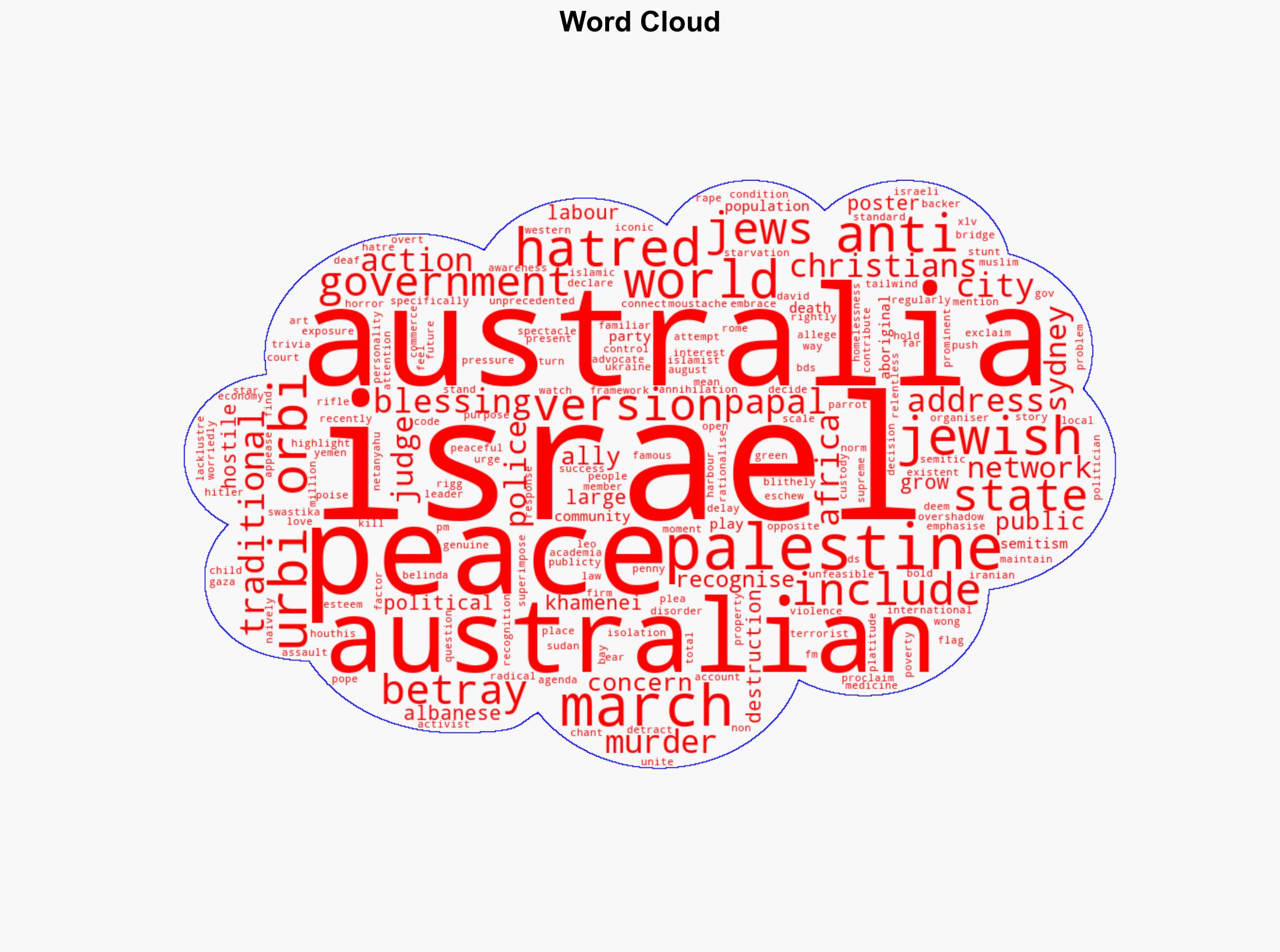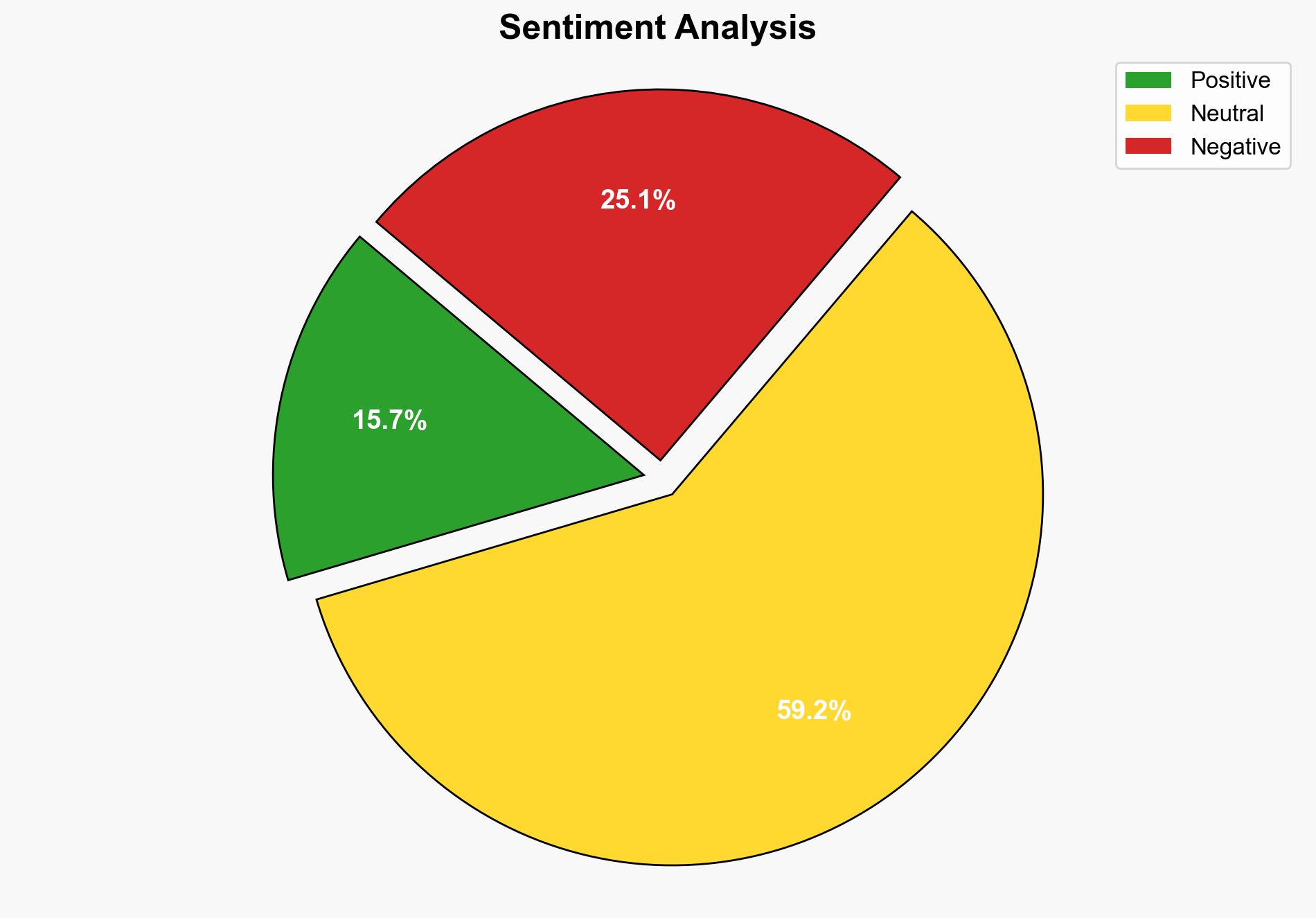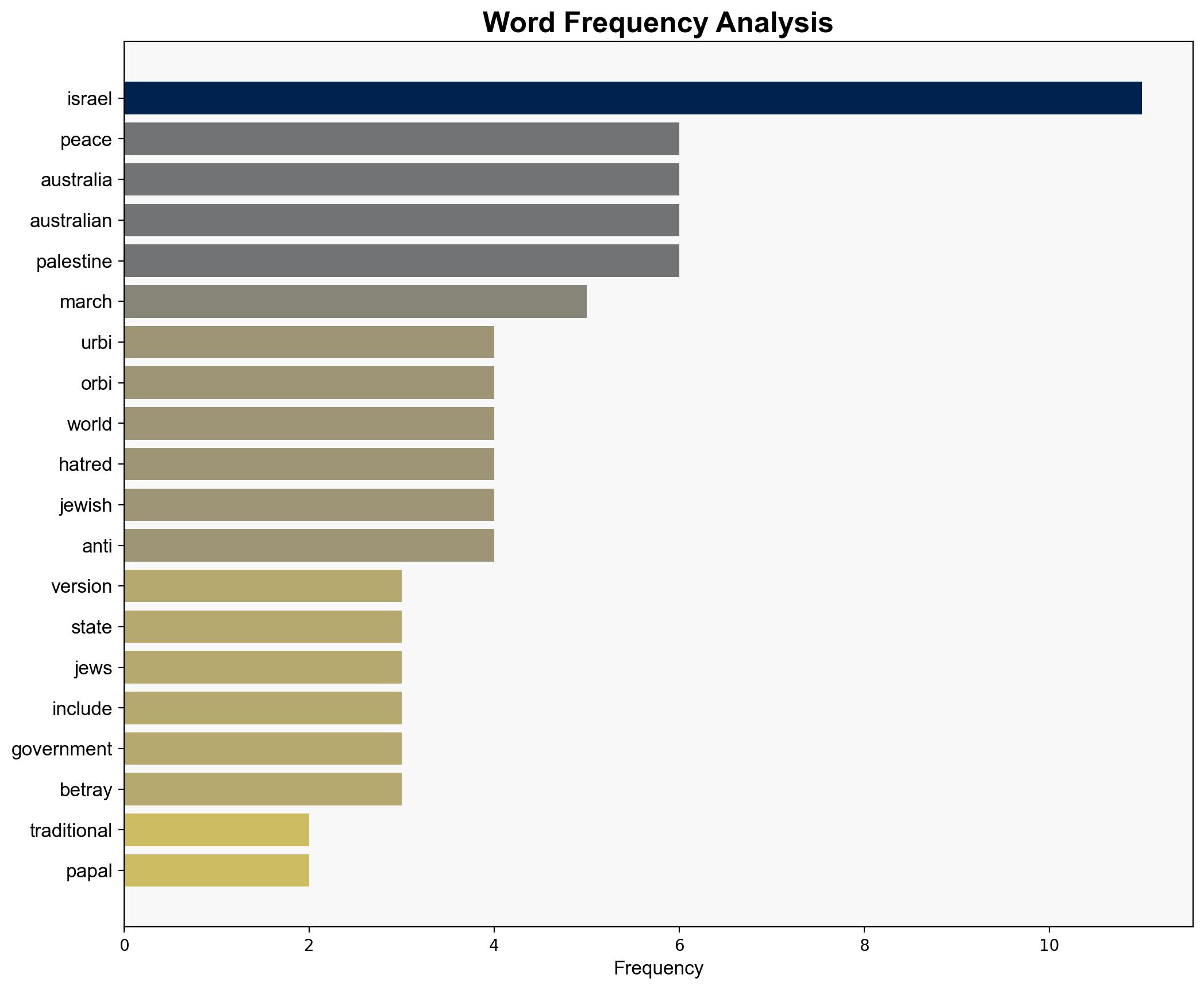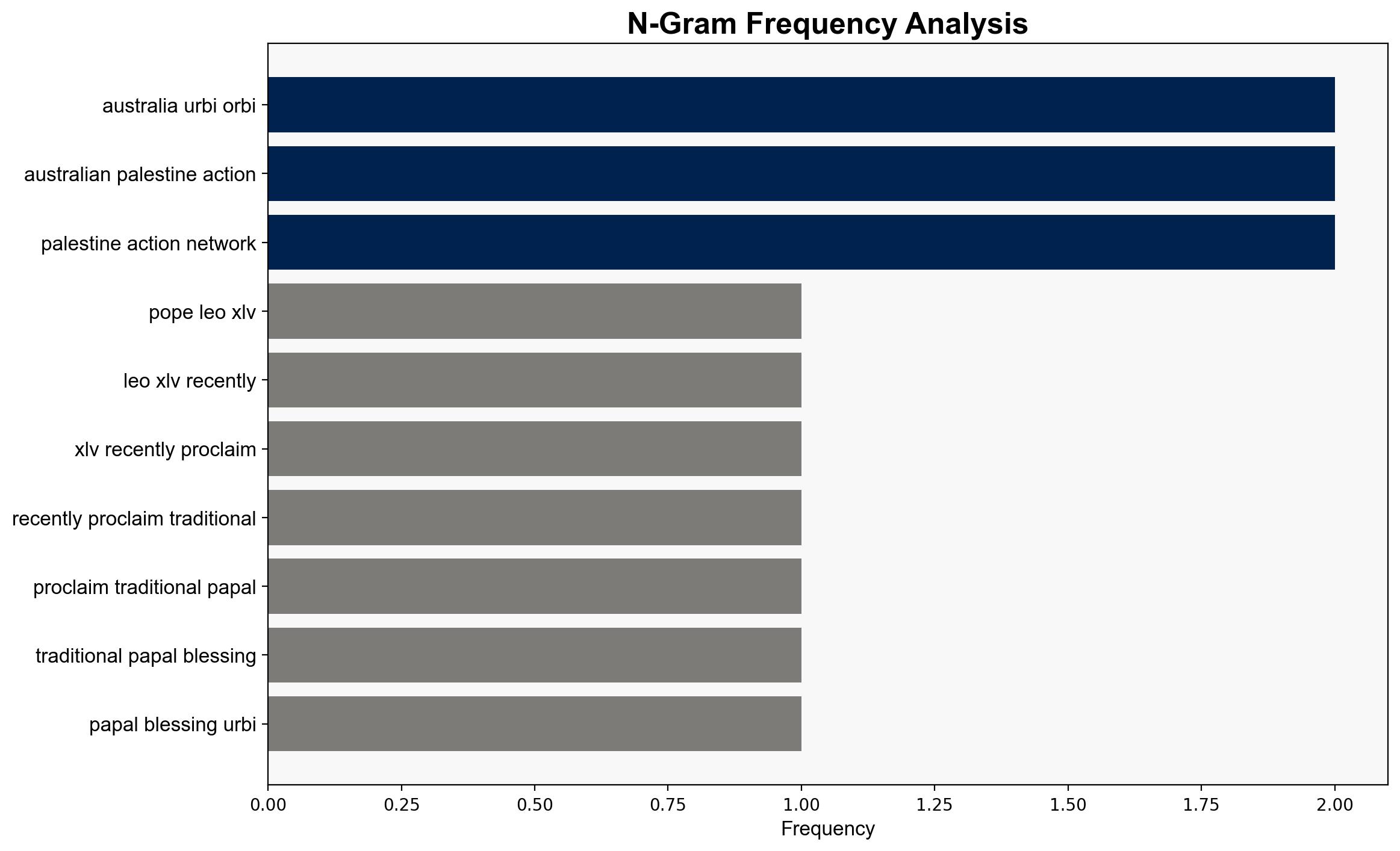Australia’s Urbi et Orbi moment – Israelnationalnews.com
Published on: 2025-08-06
Intelligence Report: Australia’s Urbi et Orbi moment – Israelnationalnews.com
1. BLUF (Bottom Line Up Front)
The analysis suggests a moderate confidence level in the hypothesis that the Australian government’s current stance on the Israeli-Palestinian conflict is influenced by domestic political considerations, including appeasing a growing Muslim population and political alliances. The alternative hypothesis, that the actions are primarily driven by a genuine shift in foreign policy priorities towards recognizing Palestinian statehood, is less supported. Recommended action includes diplomatic engagement to clarify Australia’s position and mitigate potential strains on international relations.
2. Competing Hypotheses
1. **Hypothesis A**: Australia’s actions regarding the Israeli-Palestinian conflict are primarily influenced by domestic political considerations, including appeasing a growing Muslim population and political alliances with parties like the Green Party and certain Labour members.
2. **Hypothesis B**: Australia’s actions represent a genuine shift in foreign policy priorities, focusing on recognizing Palestinian statehood and addressing humanitarian concerns, independent of domestic political pressures.
Using ACH 2.0, Hypothesis A is better supported due to the emphasis on domestic political dynamics and historical context provided in the source text, which highlights political motivations and alliances.
3. Key Assumptions and Red Flags
– **Assumptions**: Hypothesis A assumes that domestic political dynamics significantly influence foreign policy decisions. Hypothesis B assumes a genuine humanitarian and geopolitical shift in policy.
– **Red Flags**: The source text’s potential bias against Australia’s current government could skew interpretation. The lack of direct statements from Australian officials regarding their motivations is a critical data gap.
– **Cognitive Bias**: Confirmation bias may affect the interpretation of Australia’s motivations, especially if relying heavily on the source’s perspective.
4. Implications and Strategic Risks
– **Geopolitical Risks**: Strained relations with Israel could impact intelligence sharing and regional security cooperation.
– **Domestic Risks**: Increased polarization and potential for domestic unrest if the public perceives government actions as biased or unjust.
– **Economic Risks**: Potential impacts on trade relations with countries aligned with Israel.
– **Psychological Risks**: Heightened community tensions and potential radicalization if the narrative of appeasement gains traction.
5. Recommendations and Outlook
- Engage in diplomatic dialogue with Israel to reaffirm bilateral commitments and clarify Australia’s stance.
- Monitor domestic political discourse to assess shifts in public opinion and potential impacts on policy.
- Scenario Projections:
- Best Case: Diplomatic engagement leads to strengthened bilateral relations and a balanced approach to Middle East policy.
- Worst Case: Continued tensions lead to a breakdown in intelligence cooperation and increased domestic unrest.
- Most Likely: A cautious diplomatic approach maintains current relations with minor adjustments to policy rhetoric.
6. Key Individuals and Entities
– Anthony Albanese
– Penny Wong
– Belinda Rigg
– Ron Hutt
7. Thematic Tags
national security threats, geopolitical dynamics, domestic political influence, regional focus





